I am trying to check whether my levelorder of my Binary Search Tree is equal to the other one. To do this, I tried to make a compareTo method. I only give equal values to the method, but it keeps on saying the condition is false. When I place breakpoints, I see that the values are still equal. I am probably not understanding it correctly. Does anyone know how to solve this?
Here is what I did, as you can see below, the compareTo returns a 1 instead of a 0:
import edu.princeton.cs.algs4.BST;
import java.util.*;
public class MyBST implements Comparable<MyBST>{
private Object e;
public MyBST(Object e){
this.e = e;
}
private Object getE(){
return e;
}
public static void main(String[] args) {
int size = 4;
Random r = new Random();
Set<Integer> tes = new LinkedHashSet<>(size);
Stack<Integer> stack = new Stack<>();
while (tes.size() < size) {
tes.add(r.nextInt(10));
}
System.out.println("possible combinations");
Set<Stack<Integer>> combos = combos(tes, stack, tes.size());
Object[] arr = combos.toArray();
List<String> d = new ArrayList<>();
for (Object s : arr) {
String b = s.toString();
b = b.replaceAll("\\[", "").replaceAll("\\]", "");
d.add(b);
}
int index = 0;
do {
BST<String, Integer> bst1 = new BST<String, Integer>();
BST<String, Integer> bst2 = new BST<String, Integer>();
String key1 = d.get(index);
String key2 = d.get(index);
key1 = key1.replaceAll(" ", "");
String[] m = key1.split(",");
key2 = key2.replaceAll(" ", "");
String[] n = key2.split(",");
System.out.println("1e order");
for (int j = 0; j < m.length; j++) {
System.out.println(m[j]);
bst1.put(m[j], 0);
}
System.out.println("2e order");
for (int j = 0; j < n.length; j++) {
System.out.println(n[j]);
bst2.put(n[j], 0);
}
System.out.println("levelorder 1e BST");
MyBST e = new MyBST(bst1.levelOrder());
MyBST y = new MyBST(bst2.levelOrder());
System.out.println(bst1.levelOrder());
System.out.println("levelorder 2e BST");
System.out.println(bst2.levelOrder());
System.out.println(e.compareTo(y) + "\n");
index++;
} while (index < arr.length - 1);
}
public static Set<Stack<Integer>> combos(Set<Integer> items, Stack<Integer> stack, int size) {
Set<Stack<Integer>> set = new HashSet<>();
if (stack.size() == size) {
set.add((Stack) stack.clone());
}
Integer[] itemz = items.toArray(new Integer[0]);
for (Integer i : itemz) {
stack.push(i);
items.remove(i);
set.addAll(combos(items, stack, size));
items.add(stack.pop());
}
return set;
}
@Override
public int compareTo(MyBST o) {
if (this.e == o.e) {
return 0;
}
else
return 1;
}
}
Here you can find the BST.java class: BST.java
And the output is something like:
The breakpoint at the compareTo method says:

